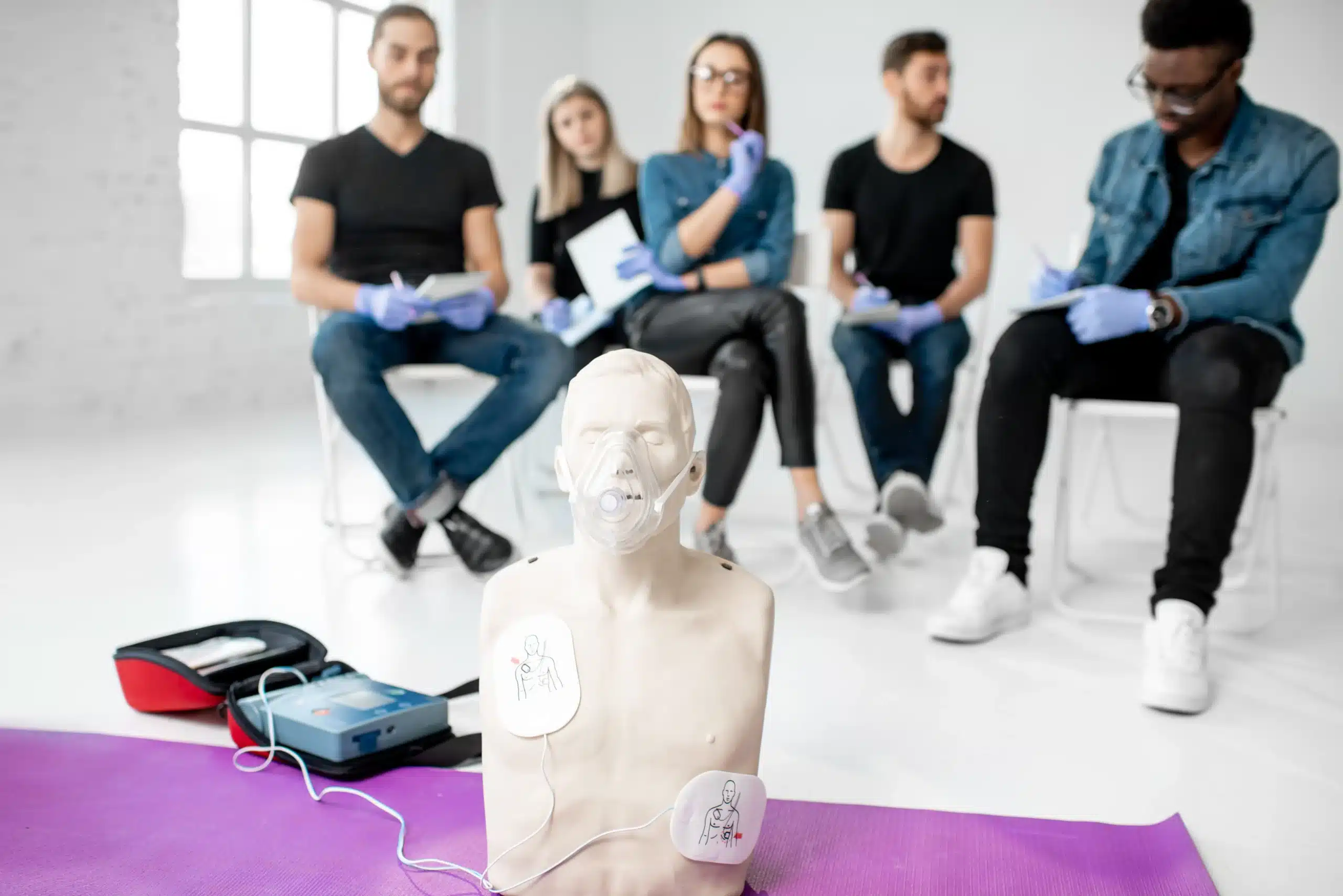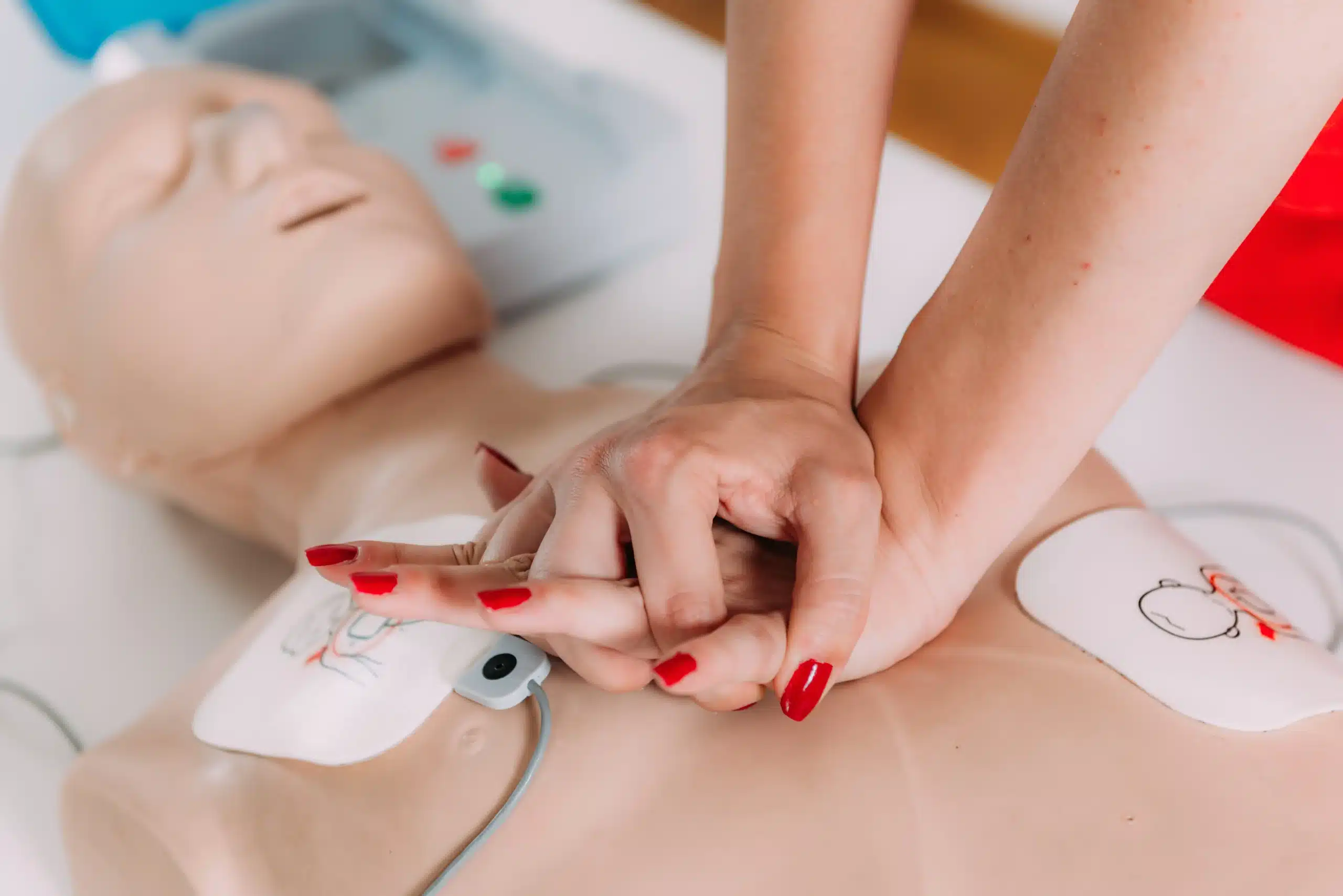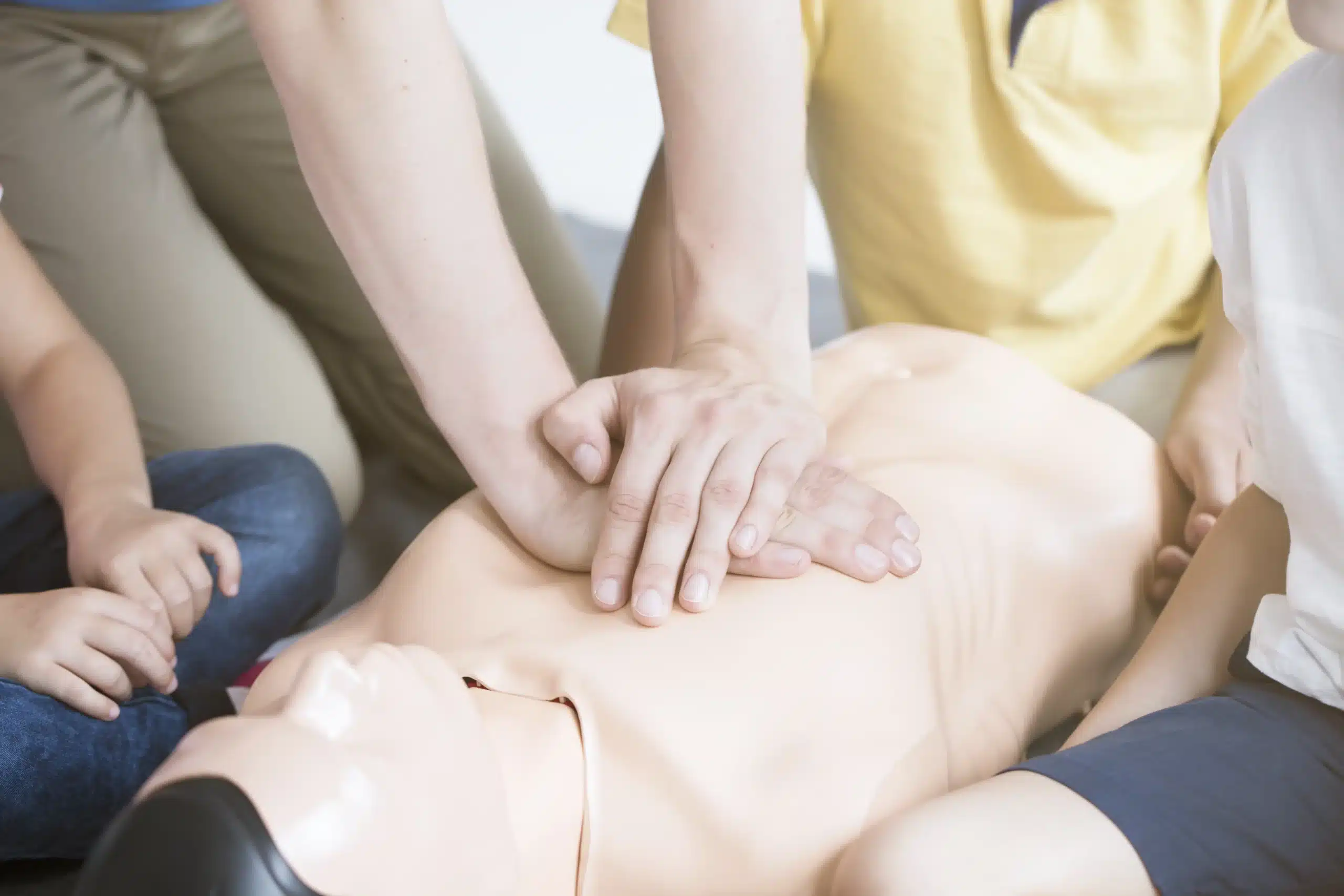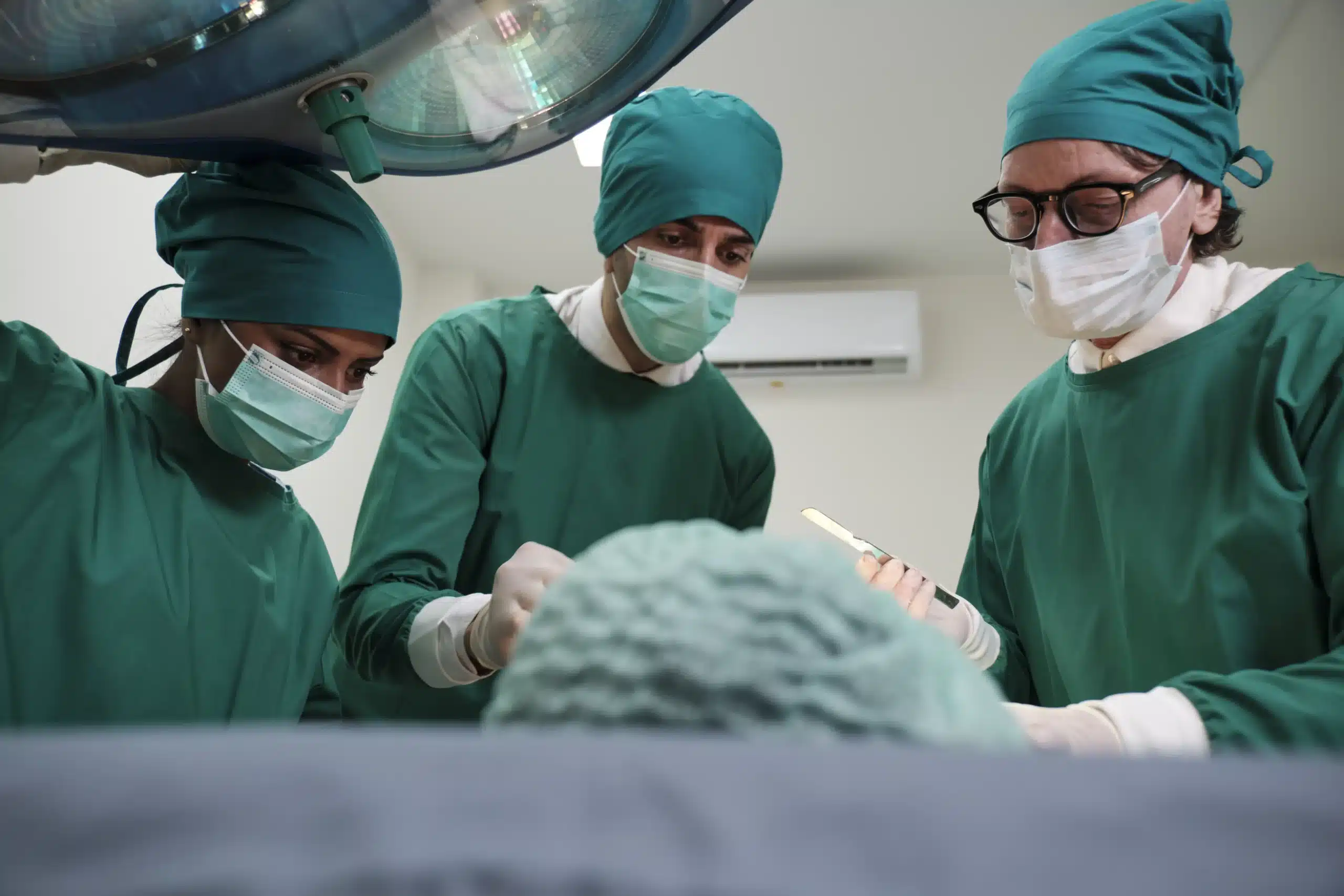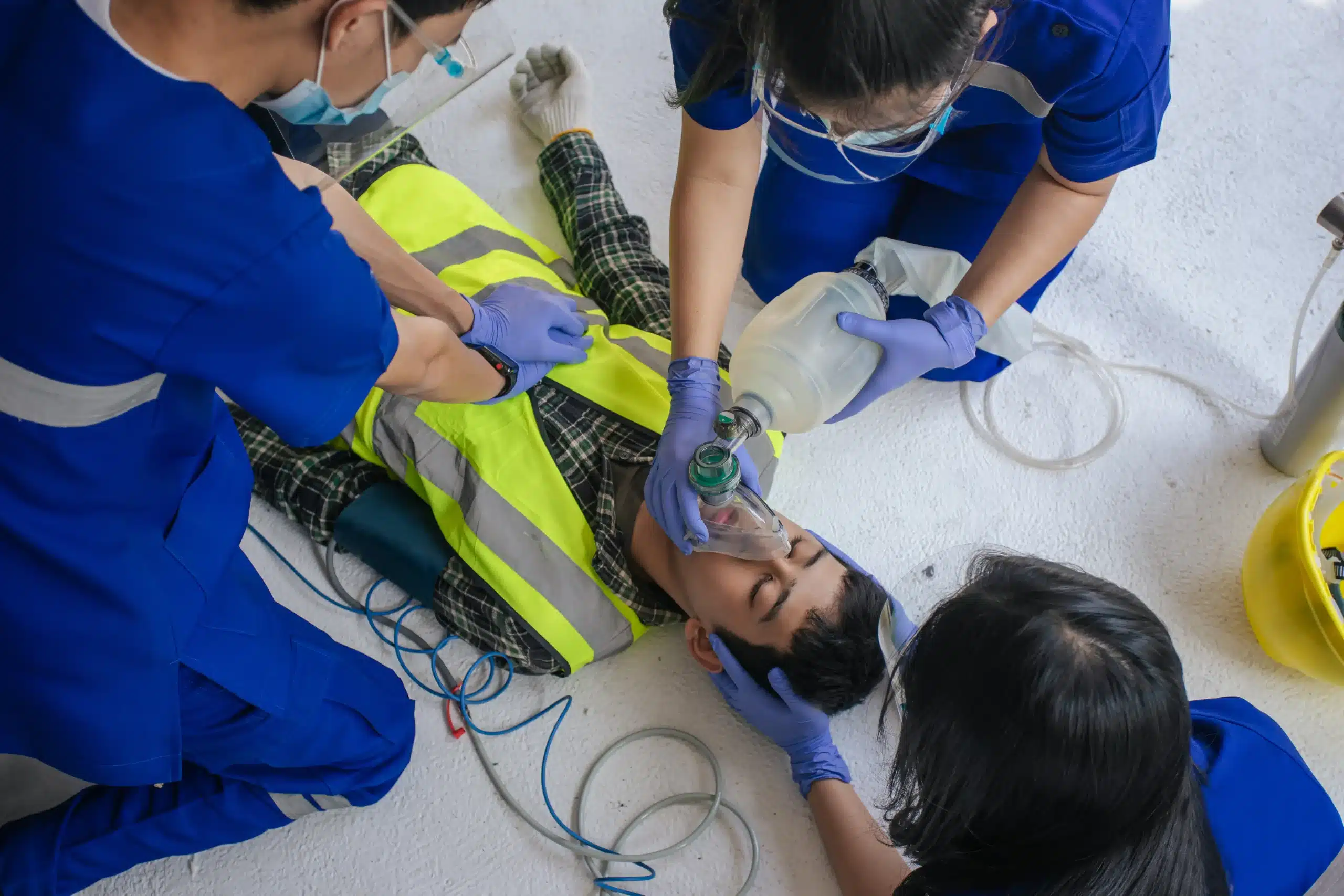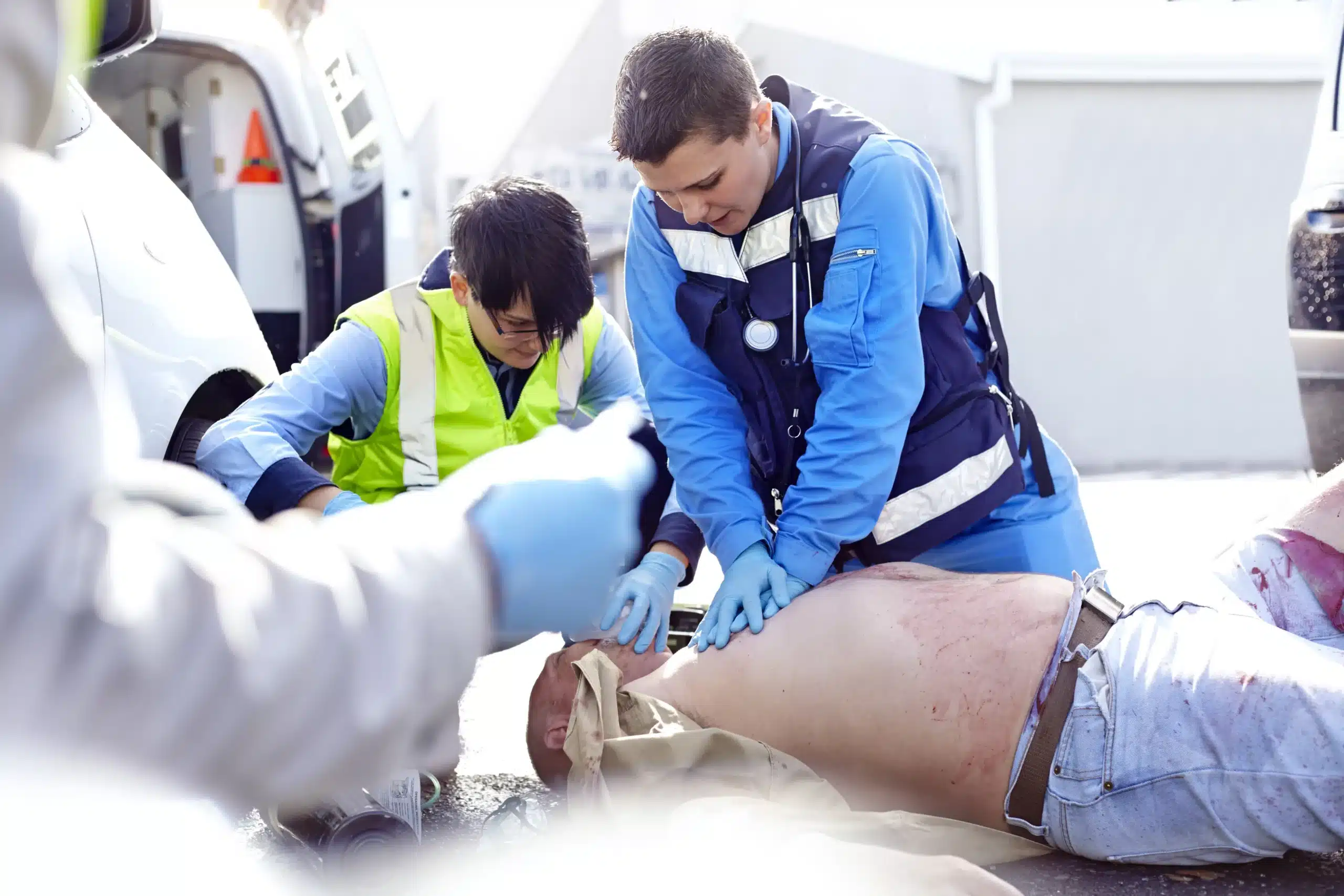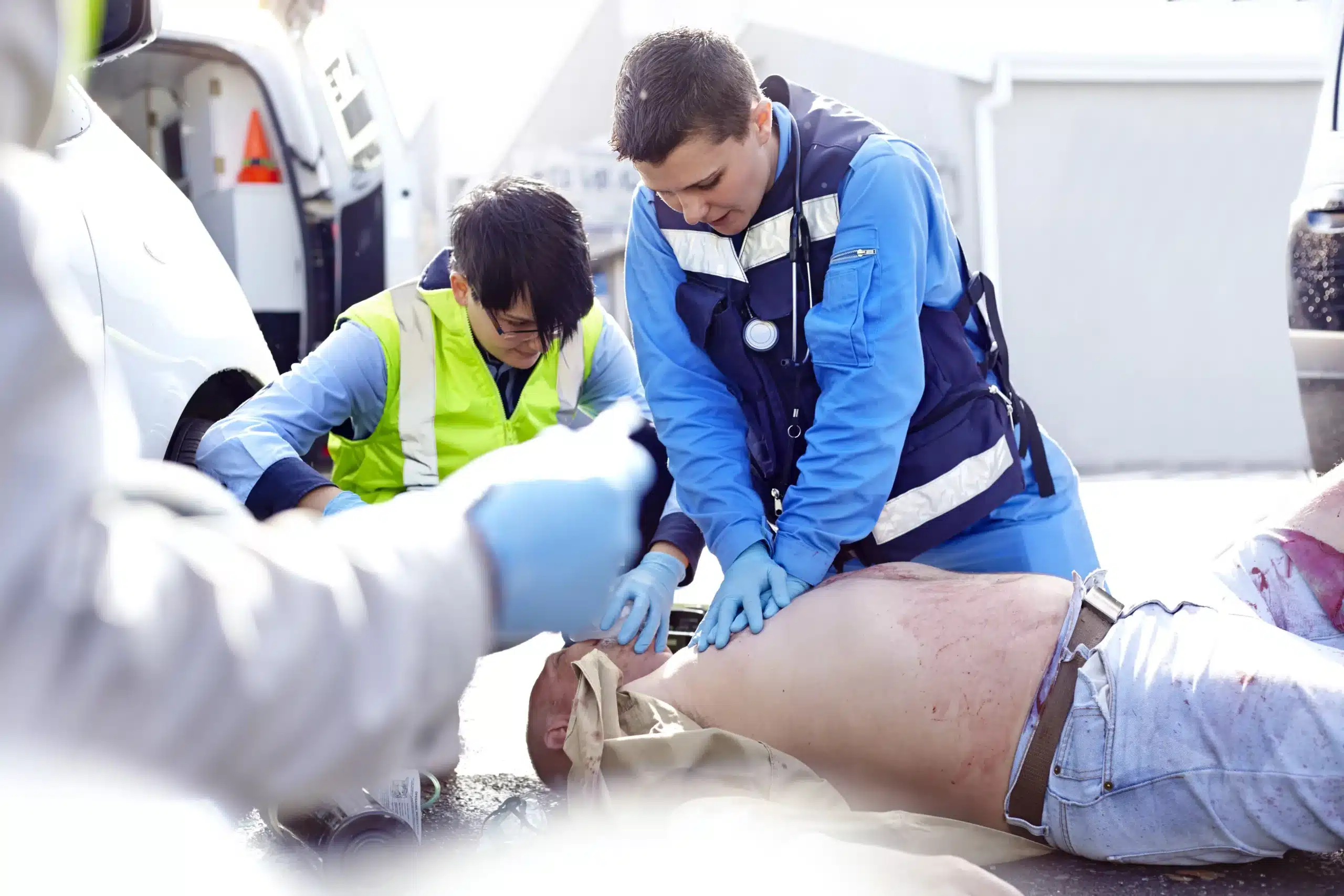Emergencies can be unpredictable, but your response doesn’t have to be. Learning first-aid in Union City is an empowering step towards being prepared for any medical situation. This guide provides a practical approach to understanding first aid, from the basics to more advanced techniques. We’ll explore the different types of first aid courses available locally, highlight key skills to learn, and discuss the legal protections afforded to those who provide aid in California. We’ll also connect you with valuable community resources and emphasize the importance of having a family emergency plan. Whether you’re looking for basic first-aid in Union City or more specialized training, this guide will help you take the first step towards becoming a confident and prepared first responder.
Key Takeaways
- Prepare for the unexpected: A well-stocked first aid kit and training from a reputable provider like Hayward CPR Classes are essential first steps in emergency preparedness.
- Choose the right course: Select a first aid course, such as those offered by Hayward CPR Classes, that meets your specific needs, whether it’s basic first aid and CPR or advanced certifications like BLS and ACLS.
- Stay current: Refresh your skills and knowledge regularly to maintain your confidence and ensure you’re using the most up-to-date first aid practices. Consider refresher courses and stay informed about evolving guidelines.
What is First Aid in Union City?
First aid in Union City means providing immediate care to someone experiencing a medical emergency. Think of it as the bridge between the incident and the arrival of professional medical help. This initial care can range from treating minor injuries like cuts and scrapes to managing more serious situations, such as a heart attack or stroke, until paramedics arrive. It’s about stabilizing the individual and preventing further harm. Union City Emergency Medical Services (UCEMS) ensures residents have access to a team of paid EMTs ready to respond to emergencies.
Beyond the immediate response, first aid also involves being prepared and knowing what to do before an emergency happens. This is where first aid training comes in. Several organizations in Union City offer these programs, empowering residents with the skills to handle various medical situations. The Training Center at RWJBarnabas Health offers a range of courses, including CPR and first aid certification. For a more comprehensive approach, the Lifesaving Society provides a Standard First Aid program that covers topics like spinal injuries and injuries related to severe weather. Having these skills can make a real difference in an emergency.
Find Essential First Aid Services in Union City
Knowing where to find immediate medical assistance is crucial, whether for a minor injury or a life-threatening emergency. Union City offers a range of services to support your health needs.
Emergency Medical Services (EMS)
Union City residents can rely on the city’s Emergency Medical Services (UCEMS). UCEMS provides comprehensive ambulance services, first aid, and emergency medical care. Unlike volunteer services, UCEMS employs trained Emergency Medical Technicians (EMTs), ensuring professional care during emergencies. This dedicated team is essential for community health and safety, offering a swift response to various medical situations. For more information, visit the City of Union City website.
Urgent Care Centers and Hospital Emergency Departments
Beyond UCEMS, Union City offers access to urgent care centers and hospital emergency departments. These facilities handle non-life-threatening medical issues requiring immediate attention, like minor injuries, infections, and illnesses. They’re a valuable resource when you need quick medical assistance, often with shorter wait times than traditional hospital emergency rooms. Learn more about Union City Emergency Medical Services.
Community Health Programs
Union City also prioritizes preventative care and education through various community health programs. These programs aim to improve residents’ overall health by providing resources and information on first aid, health screenings, and wellness initiatives. The NHCAC’s Community Health Center, located at 714 31st Street, is a key provider of these services, ensuring residents have access to essential health resources. The City of Union City website offers additional details on these programs.
Where to Get First Aid Training in Union City
Knowing how to administer first aid can make a real difference in an emergency. Luckily, Union City residents have convenient access to high-quality training.
Hayward CPR Classes: Your Local AHA Training Center
Hayward CPR Classes is a woman-owned American Heart Association (AHA) Training Center offering a full range of courses right here in the East Bay. They provide everything from basic CPR and first aid certification to more advanced courses like BLS, ACLS, and PALS. Serving Hayward, Union City, and San Leandro, their convenient location and commitment to offering the lowest prices in Alameda County make them an excellent choice. They even offer RQI classes for healthcare professionals seeking a streamlined way to maintain their certifications. Plus, they offer discounts for group classes, making it a cost-effective option for workplaces or community groups. Contact them directly to find a class that fits your schedule.
Other Training Providers and Resources
While Hayward CPR Classes offers comprehensive training, it’s always good to know your options. Other organizations, such as the American Red Cross and local hospitals, may also offer first aid and CPR training in the area. A quick online search for “CPR classes near me” can uncover additional resources and compare programs. Organizations like Safety Training Seminars also provide AHA-certified courses in nearby Hayward. Remember to check if the training meets your specific needs and if the certification is recognized by your employer or licensing board, if applicable.
Explore Types of First Aid Courses
Knowing which first aid course best suits your needs can feel overwhelming with so many options. This section breaks down common certifications like BLS, ACLS, and PALS, plus specialized courses to help you choose the right path. Hayward CPR Classes offers a variety of American Heart Association certification courses to equip you with the skills to handle emergencies confidently.
Basic Life Support (BLS) and CPR Certification
Basic Life Support (BLS) provides the foundational skills needed to respond to life-threatening emergencies. It’s a crucial certification for healthcare providers and anyone in a medical field. BLS courses cover high-quality CPR for adults, children, and infants, along with AED use and relieving choking. BLS certification emphasizes early intervention and effective team dynamics to improve patient outcomes.
Advanced Cardiovascular Life Support (ACLS)
For healthcare professionals who lead or participate in managing cardiovascular emergencies, Advanced Cardiovascular Life Support (ACLS) training is essential. Building upon BLS skills, ACLS certification covers advanced interventions for respiratory and cardiac arrest, stroke, and other acute coronary syndromes. It also covers effective team communication and coordination in critical situations.
Pediatric Advanced Life Support (PALS)
Pediatric Advanced Life Support (PALS) focuses on the specialized needs of infants and children facing medical crises. This course equips healthcare providers with the knowledge and skills to assess and treat critically ill or injured young patients. PALS training emphasizes rapid assessment, effective intervention, and the unique physiological differences between children and adults.
Specialized First Aid Courses
Beyond the core certifications of BLS, ACLS, and PALS, you can find specialized first aid courses tailored to specific needs. These can include CPR and first aid training designed for businesses, community groups, or individuals. Pediatric-focused first aid and CPR courses are also available for parents, caregivers, and educators. Many providers, including Hayward CPR Classes, offer flexible scheduling and group discounts to make training accessible.
Learn Key First Aid Skills
Knowing key first aid skills empowers you to respond effectively in emergencies, potentially saving lives. From everyday incidents to more serious events, these skills provide a foundation for confident action. This section covers essential first aid techniques everyone should know.
CPR and AED Use
CPR (Cardiopulmonary Resuscitation) is a life-saving technique used when someone’s heart stops beating. It involves chest compressions and rescue breaths to circulate oxygenated blood until professional help arrives. Learning CPR can dramatically increase the chances of survival for cardiac arrest victims. Pair this knowledge with how to use an AED (Automated External Defibrillator), a portable device that can shock the heart back into a normal rhythm, and you’ll be even more prepared. Hayward CPR Classes offers BLS training that covers both CPR and AED use.
Choking Relief Techniques
Choking is a common emergency that can occur at any time. Knowing how to perform the Heimlich maneuver on adults and children can quickly dislodge an obstruction and restore breathing. This simple yet effective technique can prevent a life-threatening situation. For infants, specific back blows and chest thrusts are used. First aid courses often include training on these critical choking relief techniques.
Wound Care and Bandaging
Proper wound care is crucial for preventing infection and promoting healing. Learning how to clean and dress a wound, apply bandages effectively, and recognize signs of infection are valuable skills. From minor cuts and scrapes to more serious injuries, knowing how to manage wounds can minimize discomfort and prevent complications. Register for first aid training to learn practical wound care techniques.
Assess and Respond to Medical Emergencies
Assessing a medical emergency involves quickly gathering information about the situation and the victim’s condition. This includes checking for responsiveness, breathing, and circulation. Learning how to prioritize actions and provide appropriate care until professional help arrives is essential. First aid training teaches you how to remain calm under pressure, make informed decisions, and respond effectively to various medical emergencies.
Prepare for Emergencies: First Aid Essentials
Knowing how to administer first aid is essential, but equally important is having the right supplies and a plan. These three steps will help you prepare for emergencies:
Create a Comprehensive First Aid Kit
A well-stocked first aid kit is your first line of defense in any medical emergency. Make sure yours includes essentials like bandages, antiseptic wipes, pain relievers, gauze, and a CPR face shield. Don’t forget any personal medications family members might need. Once you’ve built your first aid kit, store it in an easily accessible location and check the contents every six months to ensure medications haven’t expired and supplies are still adequate.
Learn Basic First Aid Techniques
Formal training gives you the confidence and skills to handle emergencies effectively. CPR and first aid certification courses are readily available in Hayward through various organizations, including Hayward CPR Classes. We offer a range of American Heart Association courses, from basic first aid and CPR to more advanced certifications like BLS and ACLS. These courses equip you with the knowledge to respond to various medical situations, from minor injuries to life-threatening events. Consider registering for CPR classes to gain practical skills and confidence.
Develop a Family Emergency Plan
Emergencies rarely give you warning, so having a family emergency plan is crucial. This plan should include evacuation routes, designated meeting points, and contact information for family members. Consider participating in community programs like the CERT program in Union City, which offers hands-on workshops to help families prepare for disasters like earthquakes and other emergencies. A solid plan ensures everyone knows what to do and where to go, reducing panic and improving your chances of staying safe. Include building a city emergency preparedness kit as part of your overall plan.
Understand Legal Aspects of First Aid in Union City
Good Samaritan Laws in California
California’s Good Samaritan laws protect those who voluntarily help someone in need during a medical emergency. These laws encourage people to assist others without worrying about legal repercussions for unintentional harm. The initial Good Samaritan statute passed in 1980 focused on encouraging emergency medical care, but has expanded to cover situations like opioid overdoses and disaster response. Essentially, if you act in good faith and within the scope of your training, you’re generally shielded from liability for unintentional harm caused while providing aid. This means you likely won’t be sued simply for trying to help. This protection from civil liability helps create an environment where people feel empowered to help others in emergencies.
Know Your Rights and Responsibilities as a First Aid Provider
While California’s Good Samaritan laws offer important legal protections, it’s crucial to understand both your rights and responsibilities when providing first aid. The law shields you from liability for unintentional harm, but this protection isn’t absolute. It applies when you act in good faith and use reasonable care based on your training. This means providing care that a reasonably prudent person with similar training would provide in the same situation. Remember that providing first aid is voluntary. You are not legally obligated to provide aid, except in specific circumstances (like certain professionals while on duty). However, if you choose to help, you should act responsibly and within the limits of your training. Understanding these nuances helps ensure you can confidently provide assistance while remaining aware of the legal framework. For instance, the Good Samaritan law also offers some protection for those who seek medical assistance at the scene of a suspected drug overdose.
Keep Your First Aid Skills Current
Knowing what to do in a medical emergency can make all the difference. But even if you’ve taken a first aid course, guidelines and best practices change. Regularly refreshing your skills is essential for providing effective care when it matters most.
Why Regular Training Matters
First aid skills can fade over time. Regular training reinforces these skills, building your confidence and reducing hesitation in emergencies. Plus, updated training ensures you’re aligned with the latest American Heart Association guidelines, including changes to CPR techniques or protocols. This is critical for delivering the most effective care. For local training options, check out the courses offered by Hayward CPR Classes.
Benefits of Refresher Courses
Refresher courses offer a convenient way to brush up on your first aid knowledge and stay up-to-date on current recommendations. They also provide a safe environment to practice techniques and ask questions. Taking a refresher course can significantly improve your response time and the quality of care you provide in a real emergency. This can be especially important for professionals like healthcare providers, teachers, and childcare workers.
Stay Updated with Latest Guidelines
Medical advancements and research lead to evolving first aid practices. Staying informed about these changes is crucial for providing safe and effective care. CPR and first aid certifications often have renewal requirements to ensure practitioners remain current with the latest guidelines. Regularly reviewing resources from organizations like the American Heart Association or the Red Cross can also help you stay informed about any updates. This commitment to ongoing learning demonstrates your dedication to providing the best possible care in any emergency situation.
Apply First Aid in Specific Situations
Knowing basic first aid is important, but applying those skills in real-life situations can feel different. Let’s explore some specific scenarios and how proper first aid can make a difference.
Respond to Heat-Related Emergencies
Heat-related illnesses, from mild heat cramps to heat stroke, can be serious. Recognizing the early symptoms of heat stroke, such as heavy sweating, weakness, dizziness, and nausea, is key. If you suspect someone is experiencing a heat-related illness, move them immediately to a cooler location. Provide water and apply cool cloths to their skin to help lower their body temperature. For more severe cases, like heat stroke, where a person may be confused or even unconscious, call 911 right away.
Handle Common Workplace Injuries
Slips, trips, and falls are common workplace hazards, but injuries can also involve machinery or equipment. A Standard First Aid course teaches you how to assess and respond to these situations. You’ll learn techniques for managing everything from minor cuts and sprains to more serious injuries like fractures or head trauma. Knowing how to control bleeding, immobilize a limb, or even administer CPR can be crucial while waiting for professional medical help.
Provide First Aid for Children and Infants
Children and infants require specific first aid approaches. Their smaller bodies and developing systems mean you need to adjust your techniques. A Pediatric First Aid CPR AED course covers essential skills tailored to younger patients. You’ll learn how to perform CPR on infants and children, handle choking incidents, and address common childhood injuries. Having this specialized training can give you the confidence to act quickly and effectively in emergencies involving little ones.
Connect with Community Resources
Knowing what community resources are available is helpful in an emergency and for ongoing first aid education. Here’s how to connect with local initiatives and opportunities:
Local First Aid Initiatives
Union City residents benefit from the services of the Union City Emergency Medical Services (UCEMS). UCEMS provides ambulance services, first aid, and emergency medical care within the community. Knowing your local emergency services providers adds an extra layer of security and preparedness.
Organize Group First Aid Training
Want to learn first aid skills with friends, family, or colleagues? Group training offers a supportive learning environment and can often be more affordable. CPR Education offers CPR and first-aid training in and around Union City, with flexible options for scheduling group classes. For training at your preferred location, In Home CPR brings the instruction to your business or home. They offer First Aid, BLS, and CPR classes with no minimum number of participants, making it easy to organize training tailored to your group. Hayward CPR Classes also offers group discounts making it a great option for businesses and other organizations.
Access Ongoing Education and Support
First aid skills benefit from regular practice to stay sharp. The Lifesaving Society’s Standard First Aid program is a great way to learn or refresh essential life-saving skills, including CPR-C certification. For those seeking ongoing training and certification, organizations like the American Red Cross and Hayward CPR Classes offer various courses in the area. Staying current on the latest guidelines and techniques ensures you’re always prepared to help when needed.
Related Articles
- Pediatric CPR & First-Aid Training in Hayward – Hayward CPR Classes
- CPR Certification in Hayward: Your Complete Guide – Hayward CPR Classes
- Northern CA CPR Directory – Hayward CPR Classes
- AHA ACLS Classes in Hayward, CA – Hayward CPR Classes
- Importance of Workplace CPR and First-Aid Training
Frequently Asked Questions
What’s the difference between first aid and CPR?
First aid encompasses a broader range of immediate care techniques, from treating minor cuts to managing more serious injuries before professional help arrives. CPR is a specific first aid technique used when someone’s heart stops beating. It focuses on restoring blood circulation and breathing. Think of CPR as one piece of the larger first aid puzzle.
How do I choose the right first aid course?
Consider your specific needs and goals. Are you a healthcare professional, a parent, or someone wanting basic knowledge for everyday emergencies? Basic first aid and CPR courses are great for general knowledge, while certifications like BLS, ACLS, and PALS cater to healthcare providers. Look at the course content and choose one that aligns with your situation.
Where can I find reliable first aid training near me?
Several organizations offer first aid and CPR training. Hayward CPR Classes is a convenient option for those in the East Bay, offering various American Heart Association-certified courses. The American Red Cross and local hospitals also frequently provide training. An online search can help you find classes in your specific area.
What should I do if I’m unsure about providing first aid in an emergency?
California’s Good Samaritan laws protect those who offer help in good faith. Even basic first aid can make a difference. If you’re hesitant, calling 911 is always the right first step. The dispatcher can guide you while you wait for professional responders.
How can I stay up-to-date on the latest first aid practices?
Guidelines and best practices can change, so refreshing your skills is important. Consider taking refresher courses periodically, especially if your initial training was a while ago. Organizations like the American Heart Association and the Red Cross offer resources and updates to help you stay current.
